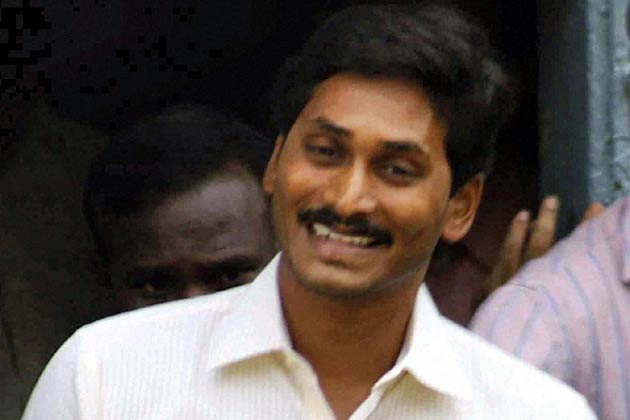
Hyderabad, June 12: A crucial day for Jagan Mohan Reddy and the Congress in Andhra Pradesh. By-polls to the Nellore Lok Sabha seat and 18 Legislative assembly constituencies is underway on Tuesday. The ruling Congress, the opposition TDP and Jagan's YSR Congress party will be slugging it out for these seats. Polling has commenced at 8 am.
The assembly seats including one in Telangana fell vacant following the disqualification of Congress rebels who joined Jagan's party.
The Tirupati seat fell vacant following Praja Rajyam chief Chiranjeevi's election to the Rajya Sabha.
YSR Congress chief Jagan Mohan Reddy will remain in Chanchalguda jail during polling as his custody was extended on Monday in the alleged disproportionate assets case. Jagan's arrest could go against the ruling Congress in these elections because Jagan's family has been calling it political vendetta.
Other factors that could weigh on voters minds are enhanced electricity charges and erratic power supply in the state. The recent hike in petrol price - the steepest ever - and a severe shortage of drinking water could also hurt the Congress' prospects.
The by-polls to 18 Assembly segments on Tuesday will not lead to the fall of the Kiran Kumar Reddy government in Andhra Pradesh anytime soon but will give a new direction to the state politics. A 'wave' is anticipated in favour of YSR Congress, its chief's arrest in the disproportionate assets case and the corruption allegations against him notwithstanding, and its candidates are expected to 'sweep' the crucial by-elections.
Jagan's arrest by CBI and the subsequent campaign by his mother YS Vijaya and sister Sharmila have in a way generated sympathy for the YSR Congress. As the current trends indicate, the YSR Congress is the front-runner in almost all the constituencies except Parkal in Warangal district of Telangana.
The Congress' strategy in this regard miserably backfired and virtually landed it in the dock as the misdeeds of the past eight years started haunting it.
The TDP, which otherwise should have benefited from the anti-incumbency factor, was caught in the crossfire between the Congress and the YSR Congress though it started off with some advantage in the beginning.
In Parkal the TRS is bent on preventing the BJP's victory as it will threaten its existence as the sole torch-bearer of the statehood movement.
In the Nellore Lok Sabha constituency, sitting Congress MP Mekapati Rajamohan Reddy who quit his party to join the YSR Congress will face former Union Minister T Subbarami Reddy of the Congress.
Meanwhile, the election authorities have made elaborate arrangements in 18 assembly constituencies and one Lok Sabha seat where 46,13,589 voters are expected to exercise their franchise in 5,413 polling stations spread over 12 districts.
State Chief Electoral Officer (CEO) Bhanwar Lal told reporters that 50,000 polling personnel, including 138 companies of Central Armed Police Force (CAPF), have been deployed for the conduct of the elections.
By-polls were necessitated in 16 of the 18 assembly seats as the sitting Congress MLAs were disqualified for switching loyalty to Jagan and voting against the Congress government during a no-trust vote in December.





Comments
Add new comment